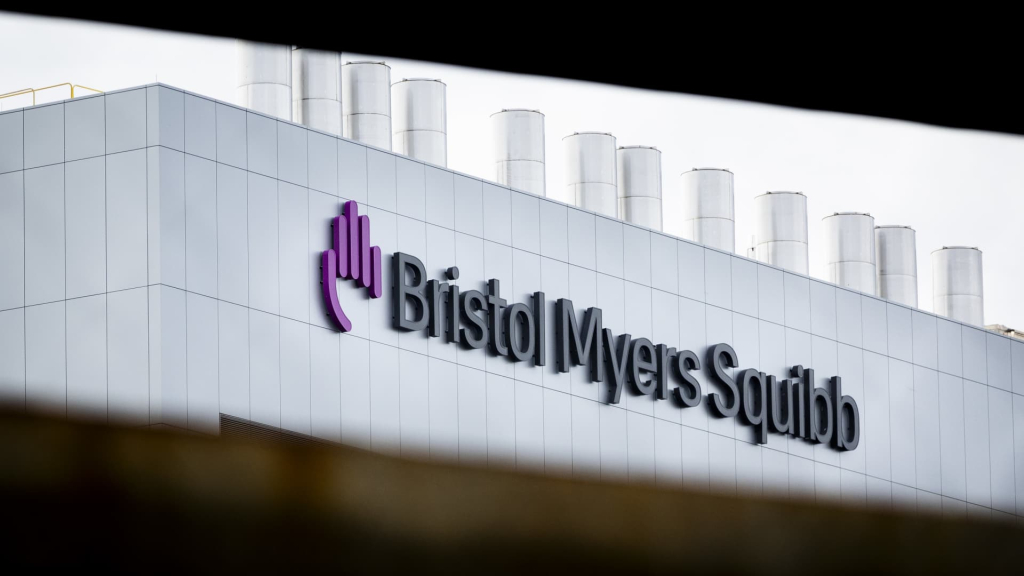Bristol Myers Squibb announced on Thursday that it outperformed expectations for the first quarter and raised its revenue and profit forecasts for the year, attributing part of the improved outlook to cost-cutting measures.
The pharmaceutical giant now anticipates its revenue for 2025 to reach between $45.8 billion and $46.8 billion, an increase from its earlier estimate of approximately $45.5 billion. Additionally, Bristol Myers is projecting its full-year adjusted earnings to be between $6.70 and $7 per share, a revision from a previous estimate of $6.55 to $6.85 per share.
In a significant note, the revised guidance includes the anticipated effects of existing tariffs on U.S. goods exported to China, a pivotal market for the company. Bristol Myers has previously detailed its “China 2030 Strategy,” a plan designed to expand access to its medications in China and include more Chinese patients in clinical trials, particularly for unmet medical needs in gastric cancer.
However, the new projections do not factor in any potential tariffs imposed by President Donald Trump on pharmaceuticals imported into the United States, according to the company.
During an earnings call on Thursday, Bristol Myers Squibb CEO Christopher Boerner expressed appreciation for the Trump administration’s initiatives aimed at boosting U.S. manufacturing but emphasized the need for careful consideration within the pharmaceutical sector.
Boerner stated that it remains “too early to provide a lot more” clarity regarding the company’s expectations for tariffs specific to pharmaceuticals. Nevertheless, he assured that the company is engaging in “mitigation efforts” to reduce the risk of supply chain disruptions and product shortages.
David Elkins, the company’s CFO, highlighted Bristol Myers’ flexibility to adjust its manufacturing operations in light of potential tariffs, underscoring the strength of its global manufacturing network, which has a robust presence in the U.S.
The upward revision in outlook is attributed to robust performance from the company’s newer drug offerings as well as stronger-than-expected sales results from its older, legacy medications.
This news comes as Bristol Myers aims to achieve $2 billion in expense reductions by the end of 2027, building on an existing plan to cut $1.5 billion in costs by the end of this fiscal year.
Notably, this update follows a challenging period for Bristol Myers, particularly after the disappointing results of its recently approved schizophrenia medication, Cobenfy, which prompted some analysts to significantly lower sales forecasts for the drug.
The company is relying heavily on Cobenfy, along with other growth portfolio drugs, to compensate for expected revenue losses as popular medications like blood thinner Eliquis and cancer immunotherapy Opdivo approach the end of their market exclusivity.
Boerner commented on existing uncertainties that could affect the company, highlighting issues related to tariffs, potential economic downturns, and changes in the restructuring of the FDA and the Department of Health and Human Services.
Despite these challenges, he expressed confidence in Bristol Myers’ ability to meet the needs of patients, employees, and shareholders.
For the first quarter, Bristol Myers reported results that exceeded Wall Street forecasts, as compiled by analysts from LSEG:
- Earnings per share: $1.80 adjusted vs. $1.49 expected
- Revenue: $11.2 billion vs. $10.7 billion expected
The company reported net income of $2.5 billion, or $1.20 per share for the first quarter, recovering from a net loss of $11.9 billion, or a loss of $5.89 per share, during the same quarter last year.
Excluding certain items, Bristol Myers recorded adjusted earnings per share of $1.80. Meanwhile, the company’s revenue saw a decline of 6% year-over-year, totaling $11.2 billion.
Eliquis, a major revenue driver for Bristol Myers, generated $3.57 billion in sales during the quarter, marking a 4% decrease from the previous year but surpassing analysts’ expectations of $3.34 billion.
Sales of Eliquis, a blood thinner co-marketed with Pfizer, are projected to face increased competition, losing market exclusivity by 2028. The drug may also experience reduced sales starting in 2026 due to a newly negotiated pricing structure for certain Medicare patients, following recent federal negotiations under the Inflation Reduction Act.
The upcoming second round of negotiations will focus on 15 additional drugs, with price adjustments enacted by 2028, including the Bristol Myers medication Pomalyst, designed for the treatment of multiple myeloma and other cancers.
Pomalyst recorded $658 million in sales for the quarter, reflecting a 24% decline from the previous year. The anti-cancer drug Revlimid reported $936 million in revenue during the first quarter, a notable 44% drop from the same timeframe last year.
In contrast, the company’s growth portfolio generated $5.56 billion in revenue for the first quarter, showing a 16% increase year-over-year. Opdivo contributed $2.27 billion in revenue, up 9% from the previous year and exceeding analysts’ expectations of $2.16 billion.
Cobenfy generated $27 million in sales during the first quarter, another point of interest for analysts and investors following its recent approval.


























